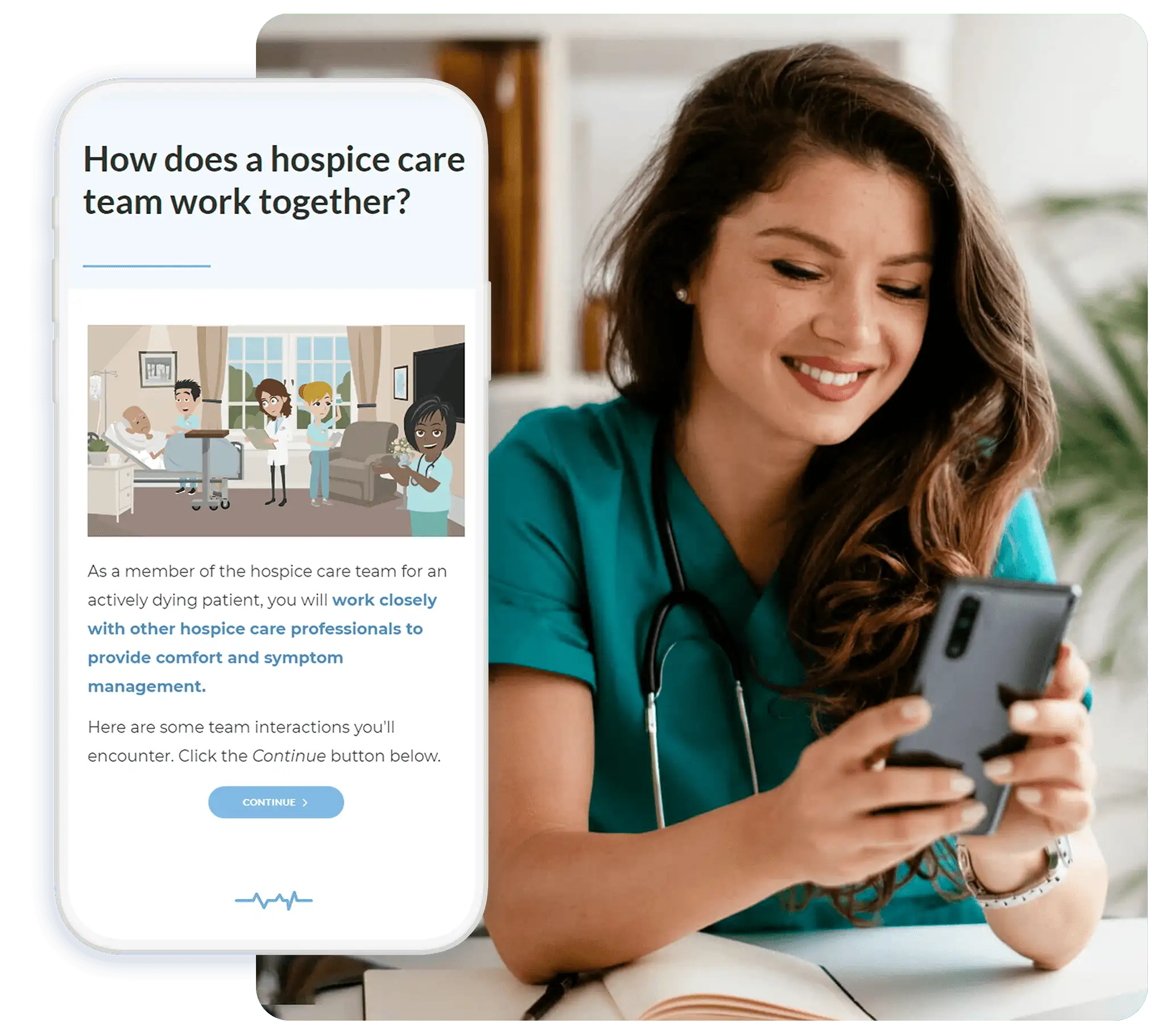Helping Those Who Are Feeling Afraid in Hospice
Introduction
There is much about dying and death that is a mystery. Fear is normal as we try to understand and come to terms with what is happening. For most of us, feeling alone at times of change intensifies our fears and anxieties. By sharing the things we fear, we can often find answers, reassurance, and hope.

CONTINUA LEARNING
Simplify Your Hospice Team’s Training and Skill Building
A complete solution for your agency: more than 125 hospice courses, caregiver in-services, training plans, and more.
Common Fears
- Pain or other symptoms will not be controlled
- Losing control or “falling apart” emotionally
- Going to sleep and not waking up
- Being alone
- The moment of death
- What comes after death
- What will happen to family and friends
- Leaving something undone
Talk to your care team about anything that is causing you or your loved one to feel frightened or anxious. Ask questions about whatever is on your mind. The more your care team knows, the more they can do to help you feel at ease.
You Can
- Talk to your hospice nurse if you have any concerns about the control of pain, suffering and other physical concerns that might occur at the end of life.
- The hospice chaplain and counselor have special training in addressing the fears that are commonly experienced and can help.
- Be a caring presence. Your touch, a gentle reassurance that you are close by, your kindness and willingness to help can support your loved one through their fear.
- Watch for physical signs of fear such as restlessness, insomnia, and crying and notify your hospice care team for care and support.
Please call your Hospice team anytime for more information or support.
If you found this article informative and useful share it with your friends and colleagues.
